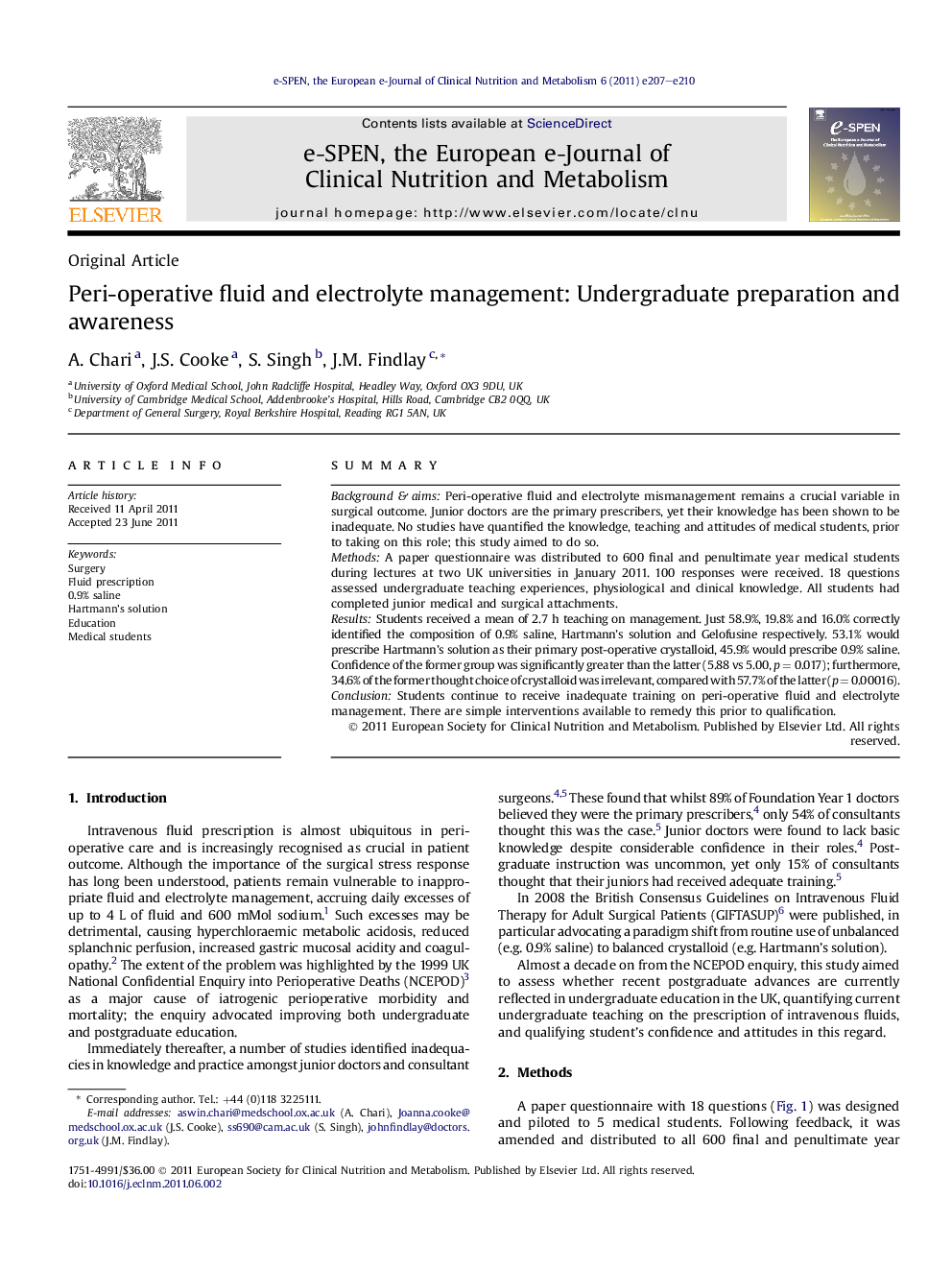| Article ID | Journal | Published Year | Pages | File Type |
|---|---|---|---|---|
| 2690922 | e-SPEN, the European e-Journal of Clinical Nutrition and Metabolism | 2011 | 4 Pages |
SummaryBackground & aimsPeri-operative fluid and electrolyte mismanagement remains a crucial variable in surgical outcome. Junior doctors are the primary prescribers, yet their knowledge has been shown to be inadequate. No studies have quantified the knowledge, teaching and attitudes of medical students, prior to taking on this role; this study aimed to do so.MethodsA paper questionnaire was distributed to 600 final and penultimate year medical students during lectures at two UK universities in January 2011. 100 responses were received. 18 questions assessed undergraduate teaching experiences, physiological and clinical knowledge. All students had completed junior medical and surgical attachments.ResultsStudents received a mean of 2.7 h teaching on management. Just 58.9%, 19.8% and 16.0% correctly identified the composition of 0.9% saline, Hartmann’s solution and Gelofusine respectively. 53.1% would prescribe Hartmann’s solution as their primary post-operative crystalloid, 45.9% would prescribe 0.9% saline. Confidence of the former group was significantly greater than the latter (5.88 vs 5.00, p = 0.017); furthermore, 34.6% of the former thought choice of crystalloid was irrelevant, compared with 57.7% of the latter (p = 0.00016).ConclusionStudents continue to receive inadequate training on peri-operative fluid and electrolyte management. There are simple interventions available to remedy this prior to qualification.
